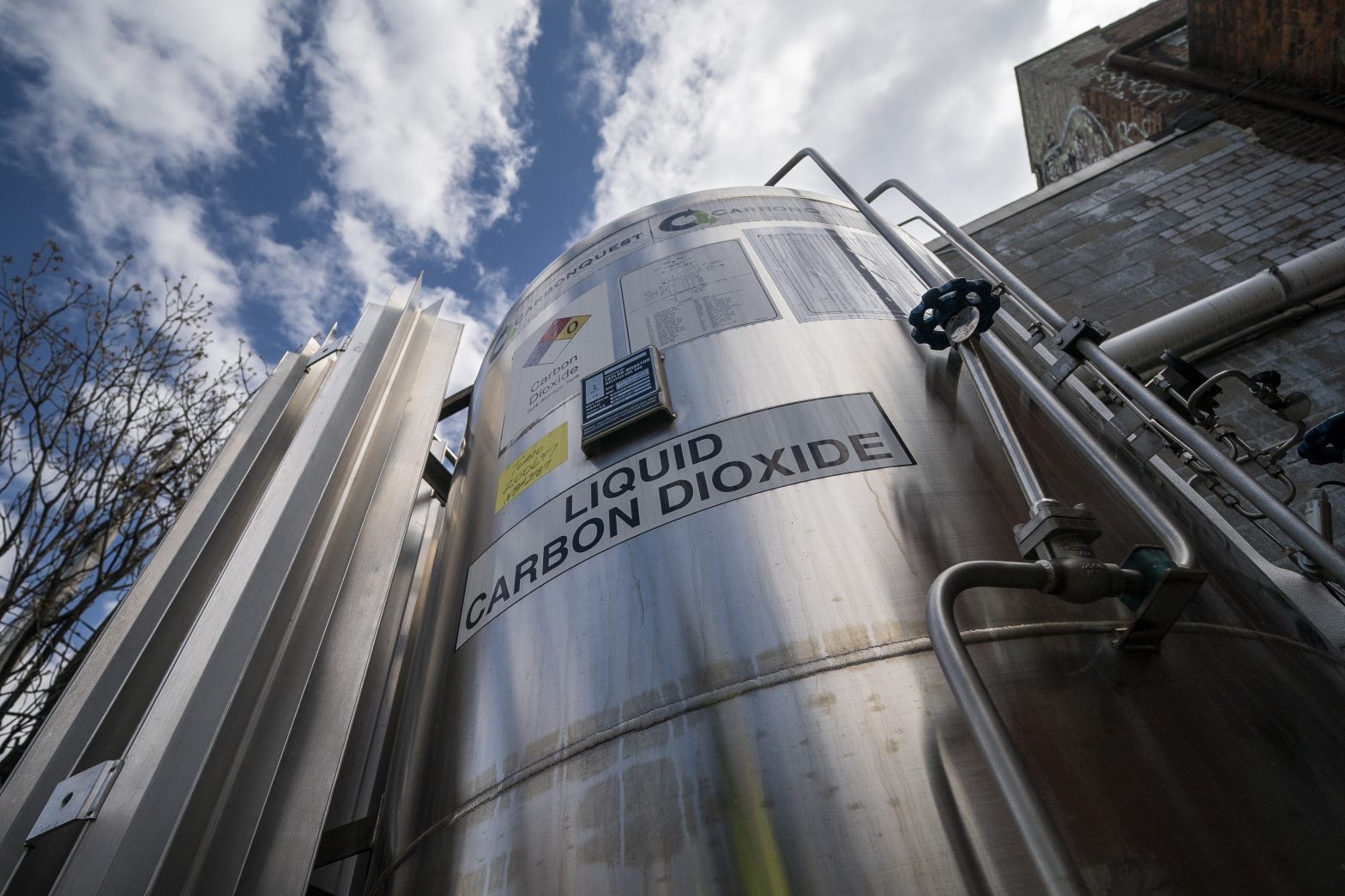EPA Must Let States Help Speed Up Implementation of Carbon Capture and Storage
COMMENTARY

By now there is little doubt that the threats from climate change present a very real challenge to our society. As a first step in addressing this challenge, the United States, and indeed the world, have established goals for net carbon reduction.
Notice that I — and most policymakers — use the term “net carbon reduction.” That’s because most experts believe that given our world’s growing energy needs and existing infrastructure and supply chains, it will be impossible to simply switch to 100% renewable energy in time to meet ambitious climate goals. Fossil fuels like natural gas, oil and even coal will, by necessity, continue to be a part of our energy mix for decades to come, with the use of offsets to remove carbon from our atmosphere.
The most well-known offset is to simply plant trees and other crops. Plants remove carbon dioxide from the atmosphere through photosynthesis, offsetting man-made carbon emissions. But there is another technology that is a necessary component of carbon offset policy: carbon capture and storage.
CCS refers to the capture of CO2 from ambient air or industrial emissions and storage of that CO2 deep underground in stable geologic formations. Most climate experts agree that CCS is essential for meeting the world’s climate objectives. In fact, when the Intergovernmental Panel on Climate Change modeled scenarios for holding warming to 1.5 degrees C, it assumed that up to 12 gigatons of carbon will be removed annually via CCS.
Here in the United States, current Secretary of Energy Jennifer Granholm has said, “We cannot meet President Biden’s climate goals, or the global 1.5° C target agreed to in Paris, without economy wide deployment of carbon capture and carbon removal at scale.”
Injecting fluids like CO2 (dissolved in water) underground is not a new technology. In fact, the Environmental Protection Agency regulates the practice under the Safe Drinking Water Act’s Underground Injection Control program. The UIC program has identified differing “classes” of injection wells used for differing purposes. To date, most underground injection of CO2 has been done using “Class II” wells for the primary purpose of enhanced oil (and gas) recovery, although these activities have also had the ancillary benefit of sequestering carbon. However, large-scale CO2 storage will require injection into deeper geologic formations. The EPA has identified these deep wells for carbon sequestration as “Class VI” wells.
Lawmakers have long agreed that CCS is important and have provided a monetary incentive to encourage underground carbon storage. In fact, CO2 storage underground received a significant boost recently. The Inflation Reduction Act increased the so-called 45Q tax credit for secure geologic storage from $50/ton to $85/ton.
So, with agreement by both parties and tax incentives not only in place but recently boosted, why isn’t there more CCS happening today? Not surprisingly, the answer is in large part government bureaucracy. The EPA has been criticized for slow permit approvals, often taking years to process Class VI permits. While states can issue permits themselves, they can only do so after the EPA has approved their state regulatory program, giving the states “primacy” for the Class VI program.
Currently, only two states, North Dakota and Wyoming, have primacy for the Class VI well program. These states have demonstrated that state approvals of Class VI wells can be granted in less than a year, while most federal approvals have taken three to six years.
In a development that could significantly speed up Class VI permitting, two oil and gas states, Louisiana and Texas, have applied for Class VI primacy, while two additional states, West Virginia and Arizona, have begun pre-application activities.
Louisiana applied for primacy for its class VI UIC wells in April 2021. A public hearing was held in Baton Rouge, Louisiana, in June 2023 on whether to grant primacy to Louisiana for the class VI UIC program. Louisiana’s application has been held up for two years over concerns about impacts to poor and underrepresented communities, but with recent changes to address those issues, the EPA has signaled that it is likely to approve Louisiana’s modified application.
Texas applied for primacy in December 2022. The state recently (July 19) held an online public comment hearing on proposed changes to their application. If approved, state primacy could significantly hasten Class VI permitting in Texas, a state with big plans for CCS. In fact, in 2021, the state leased approximately 40,000 acres of offshore state lands for CO2 storage.
Louisiana and Texas are centers of oil and gas development, as well as the refining and processing of fuels. Both states have significant capacity for geologic storage of CO2. If we are going to take climate challenge seriously, the EPA must move quickly to expedite both states’ applications for CCS primacy and encourage more states to make similar applications.
Kyle Isakower is the senior vice president at the American Council for Capital Formation. He has over 35 years of energy and environmental policy experience including work in trade association, consulting and government positions. In his 20+ years with the American Petroleum Institute, he served as an advocate on behalf of the oil and natural gas industry and managed API’s climate policy development, environmental regulatory policy and review of U.S. tax policies. Furthermore, he oversaw economic and scientific research and the creation of statistical products covering the industry and energy markets. ACCF can be reached @ACCFmedia.
























